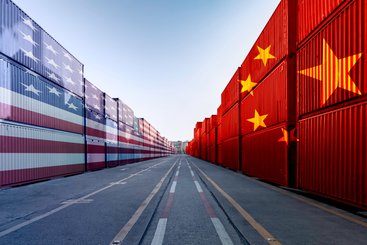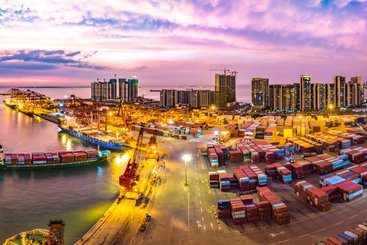Welcome to the August issue of our China and Global Development round-up. This month, I have hand-picked a selection of insightful resources that shed light on various aspects of China’s foreign relations law, debt relief, critical minerals, agriculture and food security, and its growing presence in the Maghreb.
Read 1: China’s Foreign Relations Law
The NPC Observer published a piece on China’s new Foreign Relations Law by Moritz Rudolf. Adopted in June, the law outlines China’s principles and ambitions regarding foreign policy and the international order. This is relevant for those interested in development, as the law formalises the prominence of development among China’s goals for the international order, details China’s relationship with the United Nations, and the country’s Global Development Initiative. The author argues this may be appealing to the Global South, which is increasingly unsatisfied with the Western “rules-based international order” narrative.
Debt relief
Read 2: China’s influence on the debt relief system
Muyang Chen’s article examines China’s role in reshaping international debt relief. The author argues that the Chinese approach to lending has mainly been commercially-oriented, not dissimilar to that practiced by US financiers in the 1980s. Therefore, while in recent decades the US transitioned to a “haircut approach” (increasingly writing off debts), China's rise has revitalised the commercial approach and is weakening the current international sovereign debt regime. However, deteriorating debt distress in many low- and middle-income countries makes China face the same questions that traditional creditors struggled to answer before they adopted their new approach – and therefore, Chinese financiers will have to find solutions to the challenges.
Read 3: Chinese views on the debt relief landscape
Still on debt relief, the Panda Paw Dragon Claw newsletter translated a piece by Caixin, providing insights into China’s thinking on the current debt relief landscape. While the piece is only available with a Caixin subscription, the blog post offers a pretty good overview of the content. The Caixin piece suggests that Chinese scholars are aware of the challenges linked to potential haircuts on World Bank loans. It also explores the challenges linked to the Chinese perception of the IMF’s Debt Sustainability Analysis, seen as lacking transparency, and therefore preventing Chinese stakeholders from further engaging in the negotiations. Additionally, the piece delves into the ongoing debate within China about enhancing the transparency of its lending by publishing official information on loans.
Critical minerals
Read 4: China’s role in critical minerals
An opinion piece by Wei Shen investigates the geopolitical competition for critical minerals. Critical minerals are increasingly important for transitioning away from fossil fuels, and as such, they are the object of intense geopolitical competition between China on one side and the US and Europe on the other. These resources are often located in low- and middle-income or fragile contexts, and therefore the impact of their extraction on local communities needs to be carefully considered. The author makes the case that we see a convergence between the standards and regulations adopted by China in this regard – but how these standards are implemented is critical to determine the costs and benefits accrued to local communities.
Read 5: Foreign and domestic companies in the DRC mining landscape
To keep with the mining theme, the China-Global South Project presents an informative piece on mining projects in the Democratic Republic of Congo (DRC). This includes an interactive map highlighting the locations of the copper and cobalt industry mining and production sites, as well as details about the companies involved, and export and processing data.
Agriculture and food security
Read 6: Climate change and food security
The recent catastrophic floodings that affected northern China have reminded us of the dramatic impact of climate change. This piece by Hongzhou Zhang emphasises that in China, extreme weather creates concerns about food security. Over the years, the Chinese government has tried to address these concerns with various policies, ranging from boosting domestic food production to cutting food waste. Finally, the government has sought to enhance its external food supply resilience through import diversification, overseas investment, and international cooperation.
Read 7: Chinese footprint on Senegalese agriculture
This article by Daouda Cissé discusses the benefits and drawbacks of Senegal’s booming groundnut exports to China. While the exports yield significant benefits for local farmers, they also come with long-term repercussions for local consumption, processing industries, and future production. In particular, the strong external demand for raw nuts and the resulting higher prices penalises local processing industries specifically, job creation. The Senegalese government, the author says, has limited options to reverse the current trends.
Read 8: China in the Maghreb
Tin Hinane El Kadi’s new brief on China in the Maghreb provides insights on a less-discussed, yet very interesting geography from the viewpoint of China-Africa relations. As for much of Africa, China’s economic relations with the Maghreb reproduce characteristics of unequal trade, mainly due to the Maghreb’s low levels of economic diversification. Chinese construction companies have implemented large infrastructure contracts in the region, but investment has remained scant. For Maghreb countries, the main opportunity offered by China is to expand and revamp their infrastructure, while reducing their reliance on the West.
I hope you find these resources informative and helpful. If you would like to sign up to receive this China and global development resource round-up regularly, please contact me.



